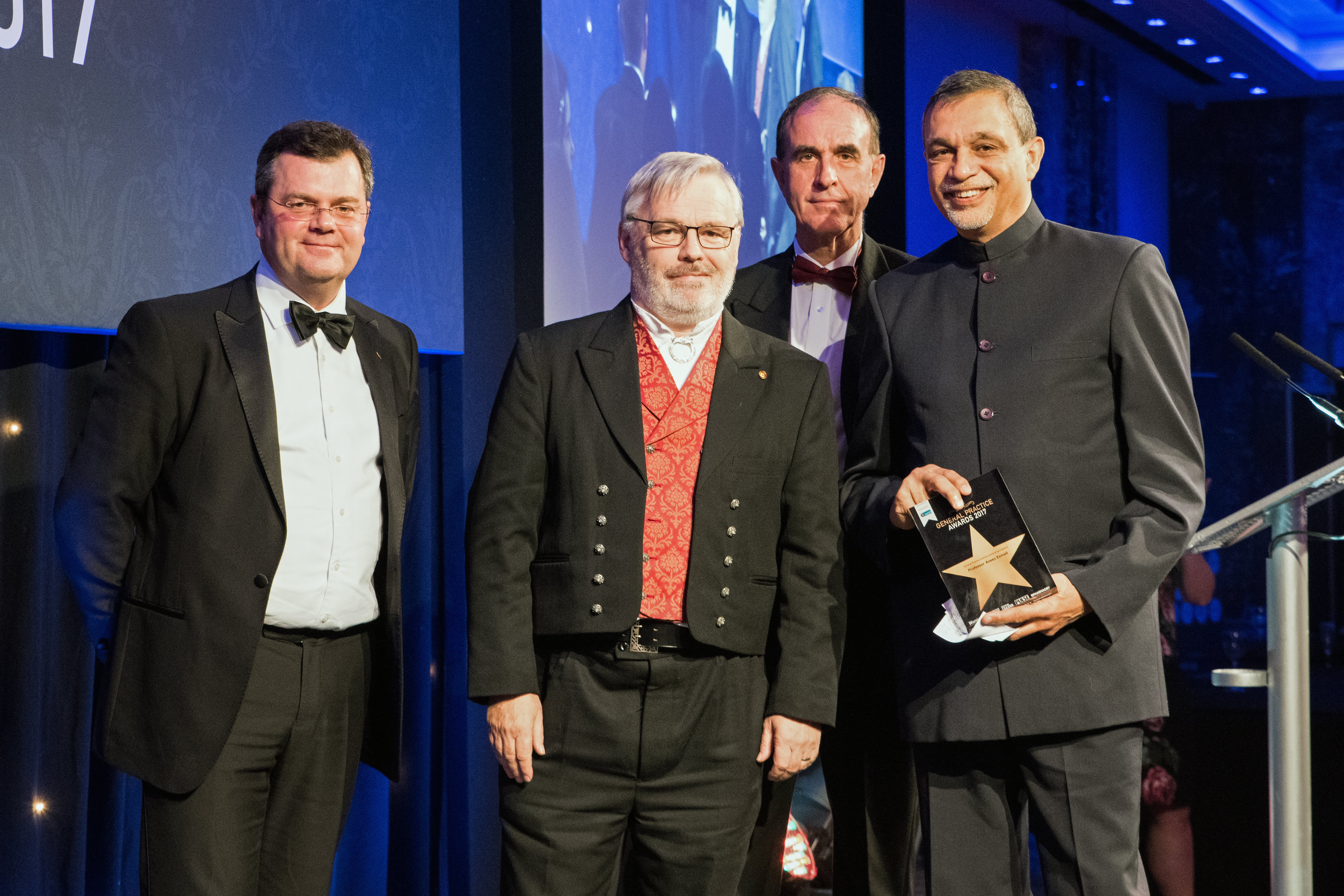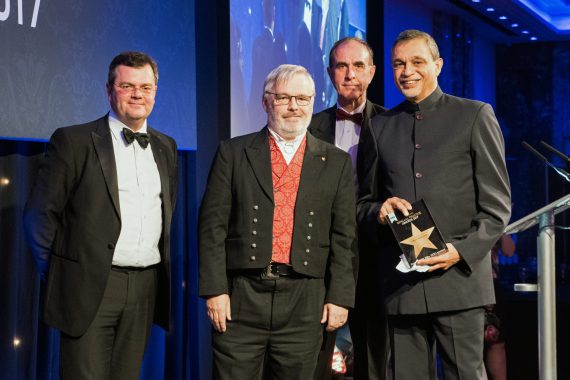Our winner tonight is a researcher, teacher and clinician, a champion of equality in the NHS and an inspiration to doctors throughout the country.
He is a GP in an inner city practice in central Manchester and a Professor of Primary Care at the University.
He graduated as a doctor in 1982, having trained at Sheffield University and subsequently qualified as a GP, and a Public Health Physician. In 1996 he became a doctor for the second time, with a PhD from the University of London.
He is recognised nationally for his research on discrimination in the medical profession and academia and is responsible for major improvements in recruitment, selection, monitoring and assessment of doctors. This has had a massive impact on the lives of doctors and their families, in this country.
He has published extensively on areas related to public health and primary care, including work on prevention of cot deaths, epidemiology of solvent abuse, preventing paediatric admissions and evaluation of telemedicine. He also leads nationally on patient safety in primary care and was the inaugural Director of the Greater Manchester Primary Care Patient Safety Translational Research Centre, between 2012 and 2017.
Between 1996 and 2001 he was Head of the School of Primary Care at the University of Manchester and was medical advisor to Dame Janet Smith, the chair of the Shipman Inquiry, between 2001 and 2004. He was Associate Vice-President for Social Responsibility and Equality & Diversity at the University of Manchester between 2005 and 2013 and has always been a fighter for human rights and equality.

Professor Aneez Esmail wins award
An active trade unionist, he was President of the Medical Practitioners Union between 1997 and 2003.
As a young boy he was brought up in Uganda. His father died at the age of 38 and then the family and all Ugandan Asians were expelled from the country by Idi Amin. His inspirational and amazing mother was left to bring up three young sons all on her own in a new country, England.
His father’s briefcase still sits under his desk at home. He is now one of the first British Indians to ever hold an executive position at a UK Russell Group University.
He is best known for his work on tackling race discrimination in the NHS. As a young doctor he asked a hospital consultant: ‘Tell me how do you decide whom you short-list for a job?’ The consultant said: ‘Oh its very simple, I put all the foreign applications in one pile and all the English applications in another pile and I look at the English applications first and only if I do not find any suitable candidates, do I look at the list with the foreign names.’
He went on in 1993 to devise a project that would determine whether discrimination was widespread in the NHS. He took two sets of application forms, the only difference being one had an Asian surname and one an English surname. He then sent both applications to 30 hospitals, which were advertising vacancies.He found that the white applicant was twice as likely to be short-listed as the Asian applicant. For this, he was arrested and charged with making fraudulent job applications. His research was published in the BMJ, covered on the Today programme and achieved national coverage and notoriety. The crown prosecution service, off course dropped the charge, but he was threatened by the GMC with a charge of behaviour unbecoming of the medical profession.
Guess what, he decided to investigate the GMC and discovered they were 6 times more likely to bring Asian doctors before the Professional Conduct Committee of the GMC, than white doctors.
I have the privilege of knowing this man for thirty years. He is as passionate a fighter today for patient care, public health, the NHS and human rights, as he was as a young doctor and takes the establishment and institutions head on, where others would fear to go. Just this month he has published research, which shows that one fifth of practising GPs trained abroad and typically work in the countries most deprived communities.
He has been a champion for a generation of ethnic minority doctors who came to work in this country and gave such great service to the NHS and a fighter for fairness and justice for all of us.
He is a great leader who betters his environment, inspires and supports his team, always leads with a positive attitude and encourages and builds the next generation of leaders.
A big thank for all you have done for doctors facing discrimination
A big thank you for all you have done for patients and the NHS
And a big thank you for the inspiration you provide for the next generation of doctors.
Today I feel very honoured to present you with the General Practice Lifetime Achievement Award, an award that recognises an individual, who during their career, has made an outstanding and inspirational contribution to general practice.
Pulse October survey
Take our July 2025 survey to potentially win £1.000 worth of tokens














